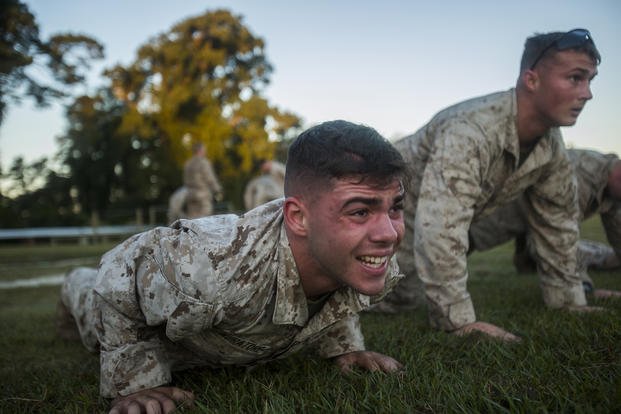Every so often I get an email from a future Special Ops student who is preparing for the challenges of some of the toughest training programs in the world (SEALs, Special Forces, AFPJ/CCT, RECON/MarSOC and foreign groups for SAS, SBS and the Foreign Legion):
Here is the question:
Stew, I have been training pretty hard mixing in weights, calisthenics, running, swimming and a few non-impact cardio options for additional heart/lungs work. I find myself not keeping up with others in the group or even meeting max repetition/faster times standards in the PST. I am feeling pretty discouraged with the workouts, but I stay motivated to train with my buddies. Any advice?
There is nothing wrong with not meeting maximum standards; we all have to start somewhere. Besides, I have never seen any Spec Ops PT stud start off at the max-rep/fastest-times level. It is all about progressing. As long as you are getting stronger, faster and able to recover from previous workouts, you are doing it right. See the overtraining articles just in case you may be pushing too hard for your current fitness level.
Motivation through these times of growth is critical. Self-motivation. It is no one's job but yours to motivate yourself to train and put in the time. There are many reasons why people do not make it through training, and getting back up after getting knocked down is a critical skill. Call it resilience, mental toughness, stubbornness; whatever it is, you have to have it. You get this by never giving up.
All of these Special Ops programs have very high attrition rates, and there are many reasons why people do not graduate. Some of the most common are the following:
Physically uncomfortable: You will be cold, hot, tired, wet, sandy, dirty and just generally uncomfortable, yet still required to move for miles or even days without stopping, carrying heavy equipment and objects. There is no 30-minute weight room workout that will prepare you for a day of this type of training. It is good to have a solid foundation in the weight room, but you can put in the time getting in your various challenging cardio and high rep calisthenics.
Verbally harassed or stressed: I have seen super scholar athletes who have never failed anything in their lives start to doubt themselves at the first sign of weakness. Bad days happen to everyone, and you will be challenged by instructors to perform better than you ever have. They want the best out of you. Remember this is Special Ops -- not Average Ops.
Tactically substandard: Sometimes you cannot shoot, move safely with weapons and handle navigation courses. It is not often that it happens at this level of Special Ops training, but sometimes tactical skills will affect your ability to pass. It is best to be a quick learner and listen to the training staff. Most people who are hunters or shoot before these training programs are either the best shots in the class or have to get taught everything correctly during training and break bad habits.
Non-team player: This is probably one of the most important skills you can do long before ever thinking about joining the military. Play team sports. Learn to be a team player, a leader on the field and that will take you further in this type of Special Ops training than anything else.
Fitness failure: Failing fitness tests during the Special Ops training program will lead to your early dismissal. Show up in top shape, and do not expect that boot camp or basic training is going to prepare you properly for your Special Ops selection.
Injuries: These happen. Knowing how to play with pain is a necessity, but serious injuries need to be addressed by the medical staff in training. Having a strong and balanced fitness foundation is critical to how your body handles the stresses of training.
So keep up the hard preparation work. It will pay off in the long run. Listen to your body's aches, pains and ability to recover and make sure you are progressing logically with your workouts.
Stew Smith is a former Navy SEAL and fitness author certified as a Strength and Conditioning Specialist (CSCS) with the National Strength and Conditioning Association. Visit his Fitness eBook store if you're looking to start a workout program to create a healthy lifestyle. Send your fitness questions to stew@stewsmith.com.
Want to Learn More About Military Life?
Whether you're thinking of joining the military, looking for fitness and basic training tips, or keeping up with military life and benefits, Military.com has you covered. Subscribe to Military.com to have military news, updates and resources delivered directly to your inbox.





















